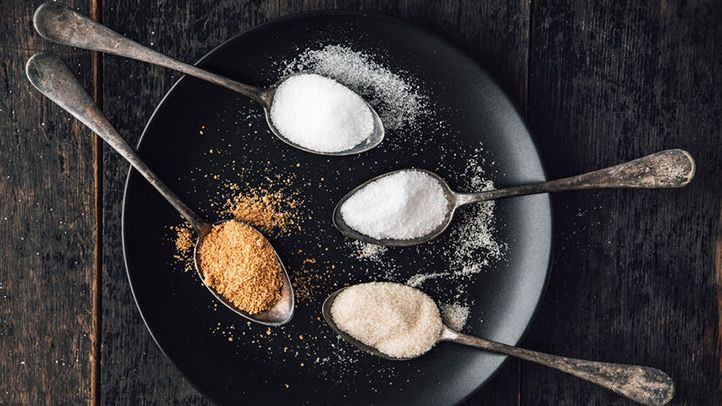Choosing the Right Sweeteners for Diabetes: A Comprehensive Guide
Sugar is a fundamental source of energy for the body, but for individuals living with diabetes, managing sugar intake is crucial to maintaining healthy blood sugar levels. This comprehensive guide will explore the types of sugar, sugar substitutes, and the best sugar choices for people with diabetes, considering factors like health benefits and glycemic impact.
Types of Sugar:
There are two primary categories of sugar: natural and added sugars.
Natural Sugars: These occur naturally in foods and provide nutrients like fiber, vitamins, and minerals. Examples include sugars found in fruits, vegetables, milk, and honey. While these sugars are nutrient-rich, they can still raise blood sugar levels and should be consumed in moderation.
Added Sugars: These are sugars added to foods and drinks during processing or preparation, such as table sugar, corn syrup, honey, and molasses. Added sugars provide calories but lack other nutrients. They can rapidly elevate blood sugar levels and contribute to health issues like obesity, heart disease, and tooth decay. Therefore, they should be avoided or limited as much as possible.
Sugar Substitutes:
Sugar substitutes offer sweetness without causing blood sugar spikes. They come in two categories: artificial sweeteners and natural sweeteners.
Artificial Sweeteners: These synthetic chemicals are several times sweeter than sugar, contain no calories, and have no effect on blood sugar levels. Examples include saccharin (Sweet’N Low), aspartame (Equal), sucralose (Splenda), and stevia (Truvia). While generally safe for people with diabetes, some studies suggest they may impact gut bacteria, metabolism, and appetite, so they should be used in moderation alongside a balanced diet.
Natural Sweeteners: Derived from plants or animals, natural sweeteners often contain fewer or no calories compared to sugar and may offer health benefits like antioxidants or anti-inflammatory properties. Examples include monk fruit extract, coconut palm sugar, date sugar, and sugar alcohols like erythritol and xylitol. While they have a lower impact on blood sugar levels than sugar, they still contain carbohydrates and calories, necessitating moderation in consumption.
Choosing the Best Sugar for Diabetics:
The ideal sugar choice for people with diabetes depends on individual preferences, health goals, and blood sugar management. Here are some general guidelines:
- Avoid or Limit Added Sugars: Steer clear of added sugars in foods and drinks like soda, candy, cookies, cakes, ice cream, and fruit juice.
- Embrace Natural Sugars: Opt for natural sugars found in fruits, vegetables, and low-fat dairy products, as they come with valuable nutrients.
- Use Sugar Substitutes Wisely: When using sugar substitutes, choose FDA-approved artificial sweeteners and natural sweeteners with a low glycemic index. Always exercise moderation.
- Monitor Blood Sugar Levels: Regularly monitor blood sugar levels and adjust carbohydrate intake accordingly to maintain control.
- Consult a Professional: Before making significant dietary changes, consult with a healthcare provider or registered dietitian for personalized guidance.
There is no one-size-fits-all answer to what sugar is best for diabetics. The optimal choice varies from person to person, taking into account individual preferences and health needs. By following a balanced diet rich in healthy carbohydrates, protein, fat, fiber, vitamins, and minerals, individuals with diabetes can enjoy a variety of foods and beverages while effectively managing their blood sugar levels and overall health. Making informed choices about sugar and sugar substitutes is an essential step in this journey towards better diabetes management.













